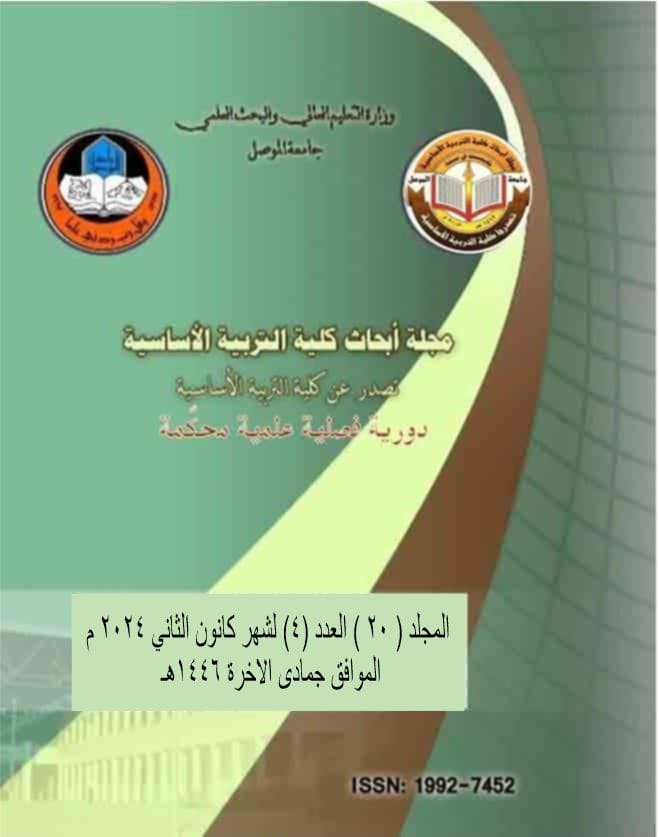Abstract
The Arabic language is characterized by brevity and conciseness, which allows for meaningful rearrangement of elements without the addition of new words, such as emphasis, care, and attention, among others, as required by the linguistic context and the speech situation. There is no doubt that Abu al-Tayyib al-Mutanabbi is a poet who has captivated people and filled the world, to the extent that he is considered the most studied poet, with numerous analyses and commentaries on his poetry. One of these commentaries is "Miraculous Ahmad," authored by the well-known writer and philosopher Abu al-Ala al-Ma'arri. We have chosen this work as a field for examining a linguistic and semantic phenomenon, specifically the free order in the poetry of Abu al-Tayyib al-Mutanabbi. We have focused on the nominal sentence for our study, due to its numerous implications, whether abstract or transformed by one of the tools for transforming sentences
Keywords
free
nominal sentence
rank
the beginner
the news
transcribers
Abstract
اللغة العربية لغة فيها الإيجاز والاختصار، لذا يكون التقديم والتأخير ذو معنى جديد من دون إضافة كلمات جديدة مثل الإظهار والعناية والاهتمام، وغيرها مما يتطلبه السياق اللغوي والموقف الكلامي ، وليس تحته شك أن أبا الطيب المتنبي شاعر شغل الناس وملأ الدنيا حتى عد أكثر شاعر تؤخر على شعره دراسات وشروح وغيرها ، ومعجز أحمد أحد هذه الشروح ، وتصدى صاحبه هو الأديب الفيلسوف المعروف أبو العلاء المعري ، وقد جعلناه ميدانًا لبحث ظاهرة لغوية دلالية ، وهي الرتبة الحرة في شعر أبي الطيب المتنبي ، وقد جعلنا الجملة الاسمية محل البحث ، لما لا يخفى من جملها لدلالات كثيرة
Keywords
الرُّتبة ، الحُرة ، النواسخ ، الجملة الاسمية ، المبتدأ ، الخبر
